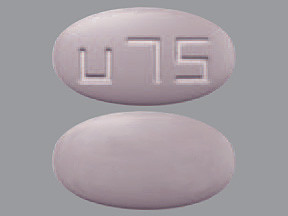BRIVARACETAM - ORAL
PHONETIC PRONUNCIATION: (BRIV-a-RA-se-tam)
COMMON BRAND NAME(S): Briviact
GENERIC NAME(S): brivaracetam
Uses
USES: Brivaracetam is used to treat seizures (epilepsy).
How to use BRIVARACETAM - ORAL
HOW TO USE: Read the Medication Guide provided by your pharmacist before you start taking brivaracetam and each time you get a refill. If you have any questions, ask your doctor or pharmacist. Take this medication by mouth with or without food as directed by your doctor, usually twice daily. The dosage is based on your medical condition, response to treatment, and other medications you may be taking. Be sure to tell your doctor and pharmacist about all the products you use (including prescription drugs, nonprescription drugs, and herbal products). Children's dosage is also based on age and weight. Swallow the tablet whole. Do not crush or chew because the drug has a bitter taste. If you are using the liquid form of this medication, measure the dose carefully using a special measuring device/cup. Do not use a household spoon because you may not get the correct dose. Use this medication regularly to get the most benefit from it. To help you remember, take it at the same times each day. Do not stop taking this medication without consulting your doctor. Your seizures may become worse when this drug is suddenly stopped. Your dose may need to be gradually decreased. Tell your doctor if your seizures do not get better or if they get worse.
Side Effects
Precautions
Interactions
Overdose
Images
Reviews
Faq for BRIVARACETAM - ORAL
Brivaracetam is an anticonvulsant medication that is used to treat seizures in adults and children with epilepsy.
Brivaracetam works by binding to a specific receptor in the brain called the synaptic vesicle protein 2A (SV2A). This helps to regulate the release of certain neurotransmitters, reducing the likelihood of seizures.
Common side effects of Brivaracetam may include drowsiness, dizziness, fatigue, and nausea. These side effects are usually temporary and tend to improve over time.
Brivaracetam is usually taken orally, with or without food. The dosage and frequency of administration will vary depending on the individual's age, weight, and severity of seizures. It is important to follow your doctor's instructions carefully.
Brivaracetam may interact with other medications, so it is important to inform your doctor about all the medications you are currently taking. Your doctor will determine if any adjustments to your medication regimen are necessary.
It is recommended to consult with your doctor before using Brivaracetam during pregnancy or while breastfeeding. They will consider the potential risks and benefits and help you make an informed decision.
In rare cases, Brivaracetam can cause allergic reactions such as rash, itching, swelling, or difficulty breathing. Seek immediate medical attention if you experience any of these symptoms.
If you miss a dose, take it as soon as you remember. However, if it is close to the time for your next scheduled dose, skip the missed dose and continue with your regular dosing schedule. Do not take a double dose to make up for a missed one.
Abruptly stopping Brivaracetam can increase the risk of seizures. It is important to follow your doctor's instructions regarding tapering off the medication if you need to discontinue its use.
Disclaimer
IMPORTANT: HOW TO USE THIS INFORMATION: This is a summary and does NOT have all possible information about this product. This information does not assure that this product is safe, effective, or appropriate for you. This information is not individual medical advice and does not substitute for the advice of your health care professional. Always ask your health care professional for complete information about this product and your specific health needs.






No Reviews Yet